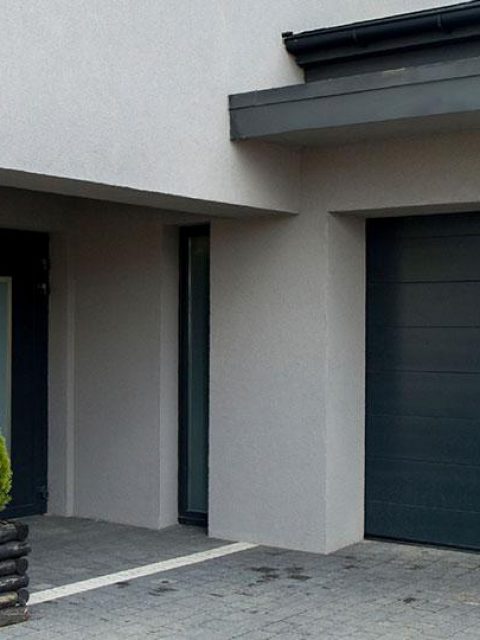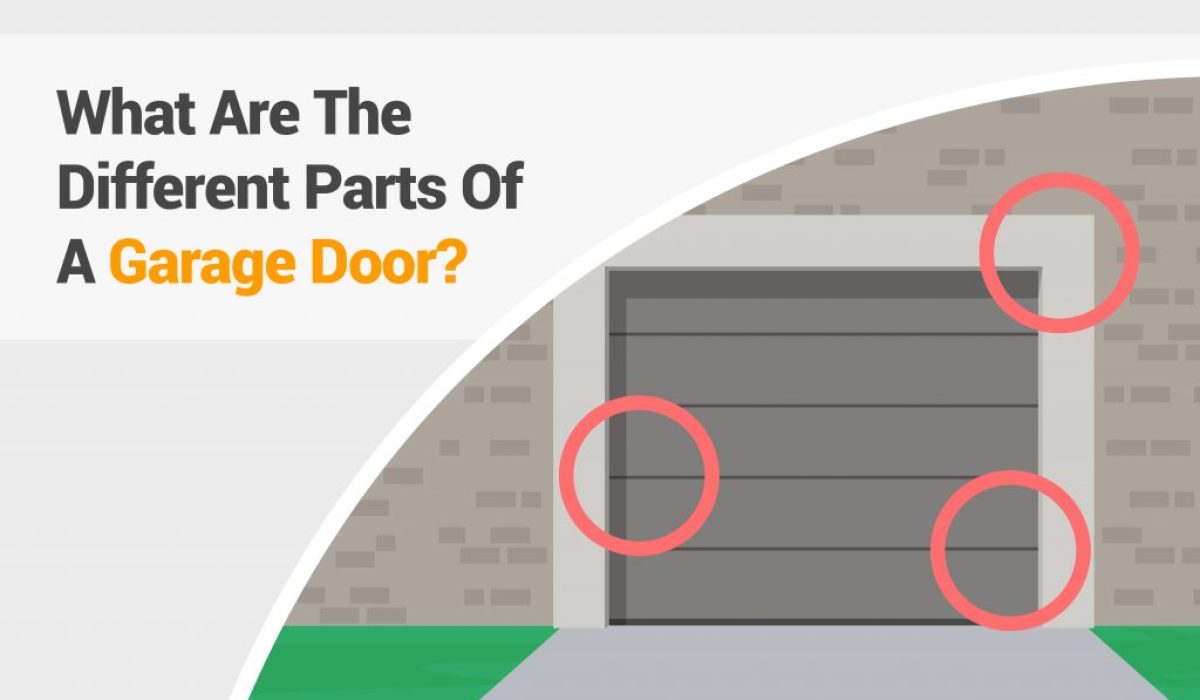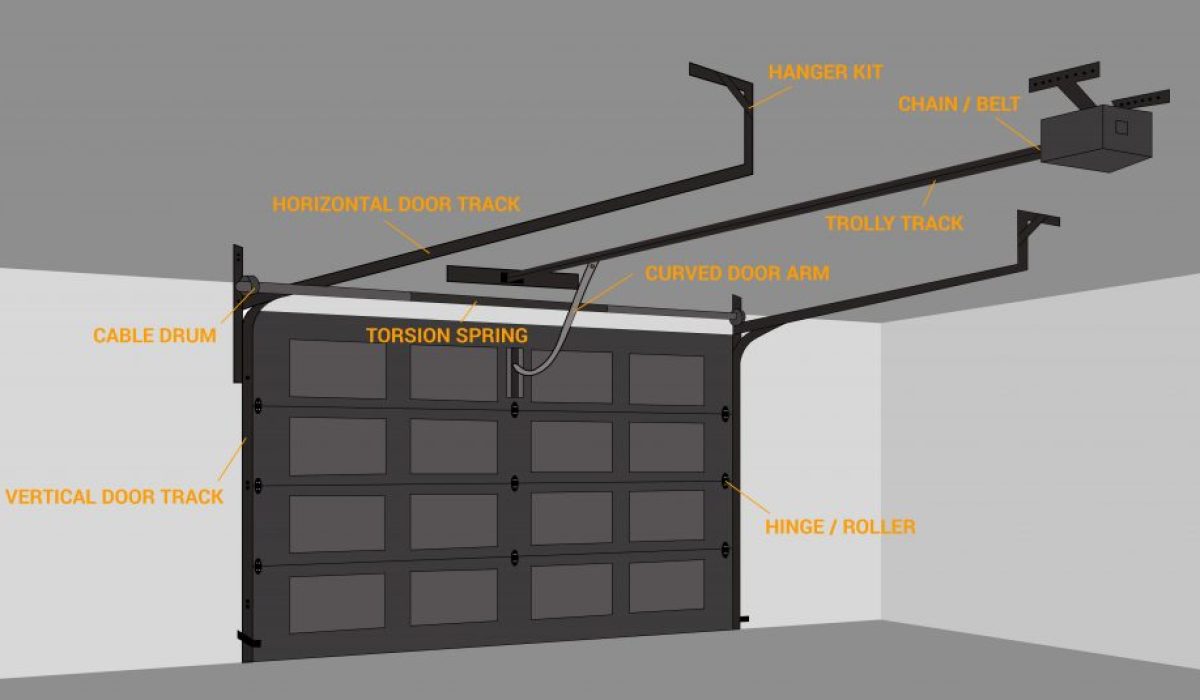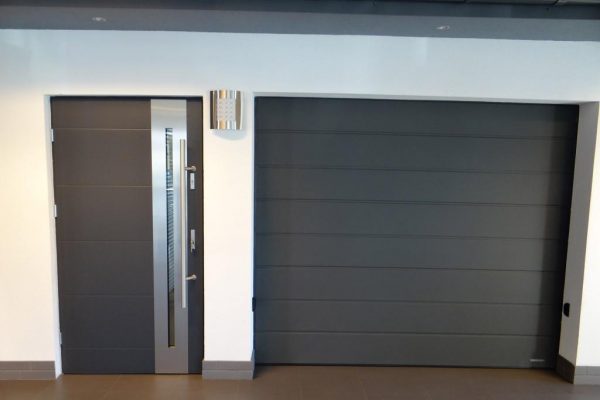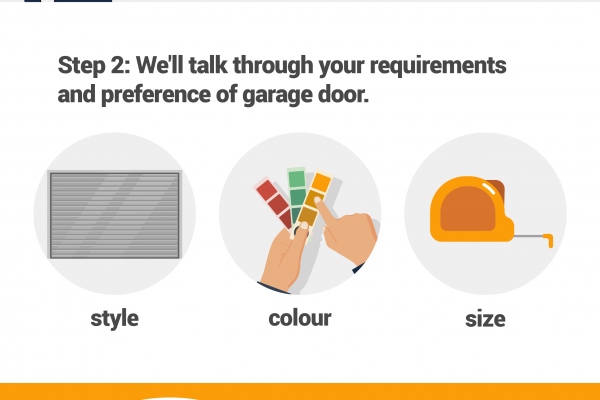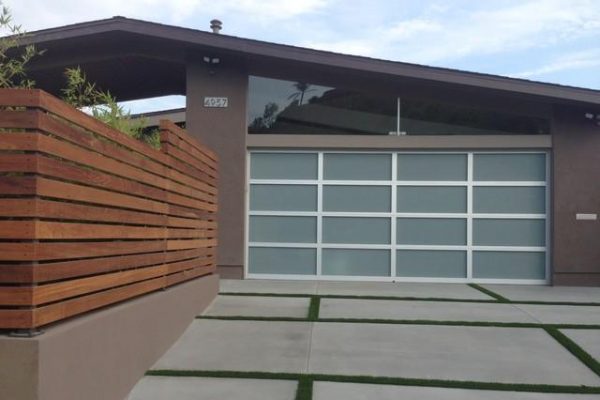What Are the Different Parts of a Garage Door?
On the surface, a garage door looks like a pretty simple thing. Just another door on your property, we can all be forgiven for only thinking of the door itself, but a garage door is actually made up of a number of complex parts.
As a homeowner, you may not ever need to understand all the little intricate features of your garage door mechanism. However, if your garage door encounters a fault or you notice a part breaking, it’s going to be useful to know what the part is and how it fits into the general operation of the door. That’s why, at Doormatic Garage Doors, we’ve put together a guide to the different parts your garage door may include.
Garage door parts diagram
First, a quick visual representation of a typical garage door. Sometimes it’s easier to see a diagram, with the garage door as a whole, before breaking it down into the individual parts and how they work.
Garage Door Parts
Now let’s go through some of the common garage door parts you’re likely to find on your door and the framework around it.
Door tracks
Most garage doors will feature tracks. These will typically run vertically on either side of your garage door opening. The door sits in these tracks, using them as guides for a smooth and even opening action.
Bottom rail
The bottom rail – sometimes called the bottom seal or weather strip – runs horizontally along the bottom of the garage door itself. When lowered, it creates a seal with the floor to prevent rain and debris from flowing into your garage. If this rail is damaged or if your floor is uneven, the seal will not work.
Hanger kit
If you have a garage door suspended under the ceiling of your garage, you’ll likely have a hanger kit — usually a metal, triangular frame. This holds the rails in place and can also be used to hold any motor in place for an electric garage door.
Rollers
Almost all garage doors will feature rollers along the side for smooth operation. These sit inside the tracks and roll up and down, guided for a seamless action every time.
Garage door hinge
If you have a garage door that is formed of numerous sections, you will find each section is joined to the next with hinges, allowing the door to bend when opening and closing.
Pulley and cable
Key to the lifting and lowering of your garage door, the cable is attached to your springs, while the pulley wheels help to lessen the weight of the door itself. This combination is what makes it easier to lift and lower the door.
Torsion spring
Many garage doors feature a torsion spring, twisting to hold energy, and counteracting the weight of the door for its safer operation either manually or with a motor.
Cable drums
A cable drum is similar to a pulley, but is wider to allow for more of the cable to wind around it.
Garage door chain or belt
Some garage doors will use a chain or belt to aid with the lowering and lifting of a heavy door. This is usually paired with a drive mechanism.
Curved door arm
In some up and over garage doors, a curved door arm will attach the top of the door itself to a rail running in the centre of the garage just underneath the ceiling.
Hopefully, you’ll find this information useful, allowing you to become more familiar with the parts you see on your garage door. If, however, you feel your garage door could benefit from maintenance carried out by a qualified professional, look no further than our expert team. We’ll make sure your garage door is operating smoothly and that we tackle any issues to help extend its life.
If you’re looking for a new garage door right now and would like to know you’re getting a quality product with all the right parts installed, just give us a call and get your free, no-obligation quote. Operating across the South East – including Surrey, Kent, Berkshire, Devon, Hampshire, West Sussex, London and Buckinghamshire – we’re always happy to help when it comes to your home.

About Doormatic Garage Doors
Doormatic Garage Doors is a well-established independent supplier of garage doors based in Guildford, Surrey and Chalfont St Peter, Buckinghamshire.
